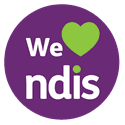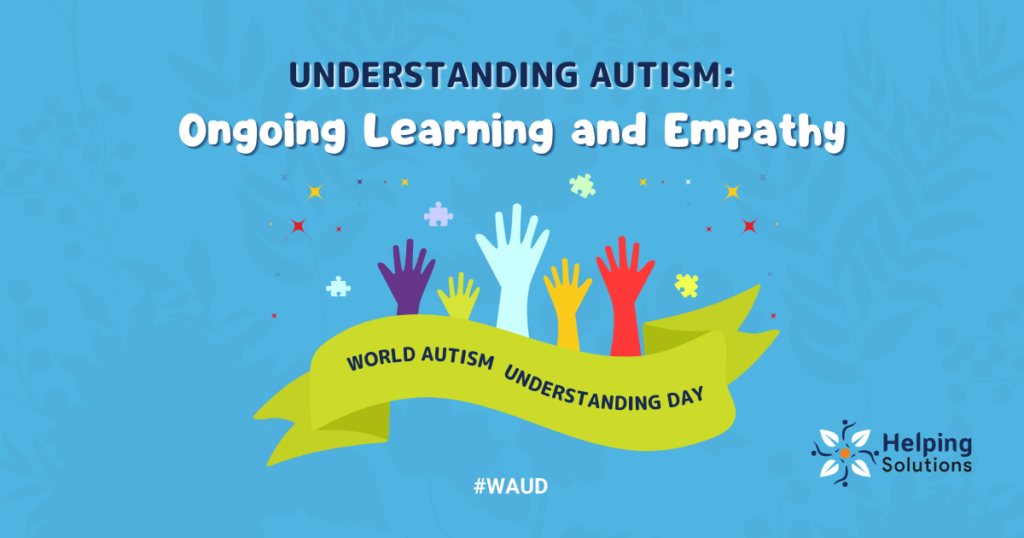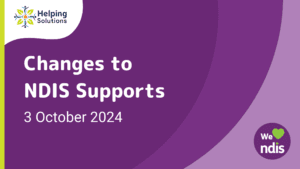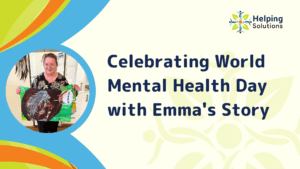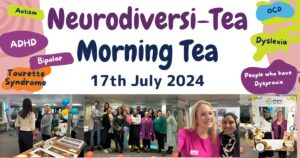“There is nothing ‘normal’ about our family, and that’s a good thing!” exclaims Vikki, mum of two boys under 6 who have received autism spectrum disorder diagnoses.
“To paint a picture for you, we were at a family breakfast over the weekend. The environment was not a familiar one, as it was a house where the boys had not spent much time. Upon arrival our youngest son proceeded to explore the house, tracing a circuit from the front living room, through the kitchen and back around in a loop. If you know Finneas, you will know that this is his pattern of familiarising himself with his environment.
The family were all gathered outside, which meant that we needed Finneas to move his exploration to the backyard area.
Steering him towards the back door and guiding him through it, had several consequences. Screaming, crying, and pounding on the floor. A few minutes later after sitting in a corner of the backyard on a comfy chair, cuddling and rubbing his back, he settled. He got up from our cuddle spot and started to explore the backyard instead of trying to run back inside.”
This experience, Vikki explains, is a daily occurrence and can happen at any time. It can happen at the shops in the grocery aisle. Guaranteed to happen when attempting to cut his hair. Or sometimes at the daycare centre when attempting to steer him to one area or another, as just a few examples. Finneas is non-verbal (apart from singing along to his favourite Thomas the Tank Engine song), and cannot yet express in words, what he needs from us in these moments.
Vikki’s eldest son, Tobias, on the other hand, made a beeline for a tricycle in the backyard that day. As opposed to Finneas’ penchant for exploration, Tobias will usually hone in on what he is interested in and fixate on that thing. Tobias has limited interests, which mostly include exploring YouTube videos on the Google Home device, playing with his marbles and building tracks for them. His ability to focus on something for extended periods of time is fascinating.
The Autism Spectrum
The word spectrum (range) is used as part of the official term for this ‘disorder’. Because there is a wide range of behaviours and characteristics that autism encompasses, this complexity is simplified in these two examples of Vikki’s boys, but these are just 2 of many unique and wonderful neurodiverse individuals.
Studies from the World Health Organization (WHO) in 2014 showed the prevalence of Autism in children to be 1 in 100. However, more recent findings from studies done in 2016 by the Centres for Disease Control and Prevention (CDC) in Canada and Australia in 2018 have revealed that the figure is closer to 1 in 70 children. This is a high number, right? One in seventy people that you meet in your lifetime sits somewhere on the Autism Spectrum.
Autism characteristics may be detected in early childhood, but a formal diagnosis is often not achieved until much later in life.
Some of the most common behavioural differences observed in people on the spectrum include:
- Difficulty in transitioning from one activity to another
- Intense focus on details or obsession to details
- Oversensitivity or unusual reactions to sensations
- Meltdowns from over-stimulation or not being understood.
World Autism Understanding Day
The World Autism Awareness Day, designated every April 2 by the United Nations General Assembly in 2007, is observed to affirm and promote the full realisation of all human rights and fundamental freedoms of people with autism on an equal basis with others.
Autism advocates in recent years have been shifting the focus from ‘awareness’ to ‘understanding’ and the day is in the process of being rebranded as WAUD (World Autism Understanding Day). While awareness is no doubt important in recognising the existence of the autism spectrum, understanding goes further by recognising diverse experiences and advocating for more inclusive environments.
By prioritising understanding, we can embrace neurodiversity, respect the strengths of autistic individuals, and create communities where they receive the same level of respect, recognition, and opportunities as others. This transition encourages us to move beyond stereotypes and stigmas for autistic persons to reach their full potential, as they have a whole lot to offer.
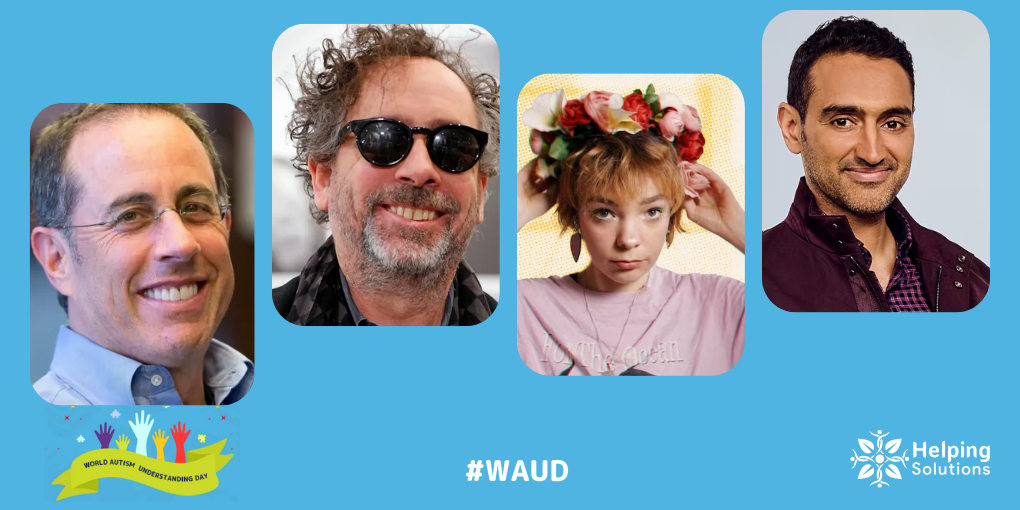

Famous people you might not know have autistic lived experiences:
- Jerry Seinfield – Comedian | Jerry openly recognises himself as having ASD due to his unique way of thinking and social anxiety
- Chloe Hayden – Australian Actress | Chloe is a huge advocate for autistic representation in the industry when casting autistic roles. She is well known on TikTok and Youtube for her videos representing autism acceptance and self-love.
- Tim Burton – Movie Director | Under speculation, his long-time partner, Helena Bonham Carter, believes he is on the spectrum due to his intense focus and unique perspective on life.
- Waleed Aly – TV Presenter | Waleed reflects on his son’s diagnosis “I didn’t worry [when they found out their son Zayn is autistic].. it actually explained a lot of things and opened up doors.”
What do I need to know? How can I help?
Knowing how to care for and understand people with autism should not be a responsibility that is solely placed on their primary caregivers. It should be accompanied by community and societal sense of responsibility and positive action to provide greater accessibility, inclusivity, understanding and support.
According to WHO, the abilities and needs of autistic people vary and can evolve. “Evidence-based psychosocial interventions can improve communication and social skills, with a positive impact on the well-being and quality of life of both autistic people and their caregivers.”
Observe, be kind, and extend your empathy towards the person with autism and their loved ones. If you witness a meltdown, don’t make a big deal of pointing it out to people around you. If someone with autism comes into your environment, first of all, you may not know they are autistic. But if they seem uncomfortable, offer them and/or their carer any assistance, or anything they would like you to do to make it more comfortable.
These could be simple things, for example:
- Start by not making assumptions
- Communicate and ask questions.
- Have patience and empathy
- Observe and adjust the environment (more light/less light, background music up or down, different room, inside/outside)
All these things and more can be helpful to shift someone from a state of distress and discomfort to a state of ease. But often, you will find that these things, well-intended as they might be, will never be enough to alleviate someone’s distress. Simply trying, and making the effort to understand, does still go a long way. And being okay with the mess, the meltdowns, and the confusion. I think sometimes we think of it as something to fix, but sometimes the best thing you can do is understand that it’s happening and go with it.
Vikki explains ‘sometimes we end up in a heap on the floor. Putting things into an order, and starting with say, an activity of tidying up the blocks, might start the calming process.’
What resources are available for people who want to understand more about Autism?
- Autism WA – Creating Inclusive Communities
- Autism WA – Inclusive Community Events
- Aspect – Autism Fact Sheets
- Aspect – Our Research
____________________________________________________________________________
Want to know more about how Helping Solutions can support you? We can help with NDIS core support services such as Community Access and Assistance with Daily living, as well as Respite for carers who need a well-deserved break.
We are also currently looking for recommendations for some of our upcoming participant fun days. Our latest fun day was a Mosaics class for our female participants as part of our International Women’s Day program in March which was an absolute blast!
If you have an inclusive activity you’d like to recommend, please feel free to reach out at [email protected]

